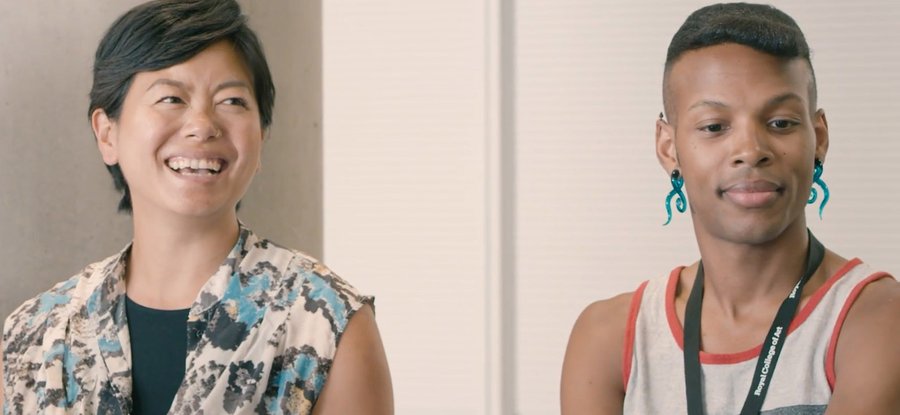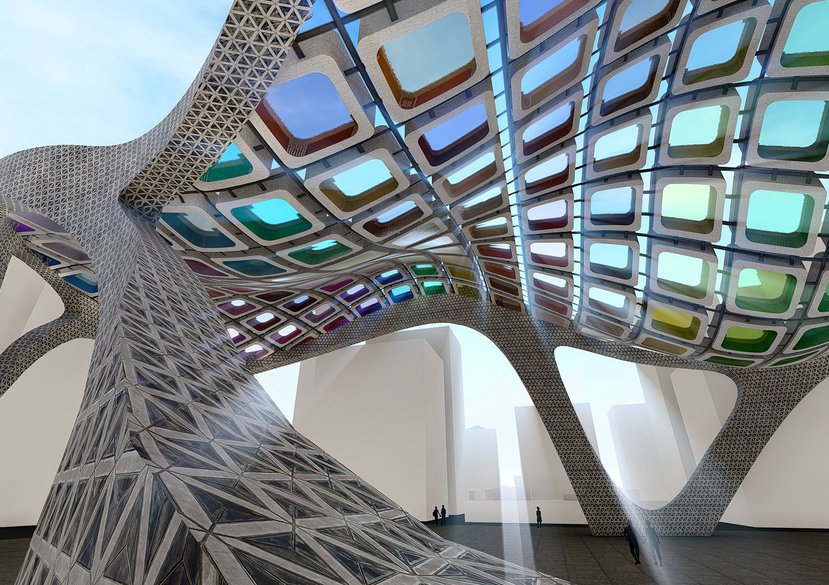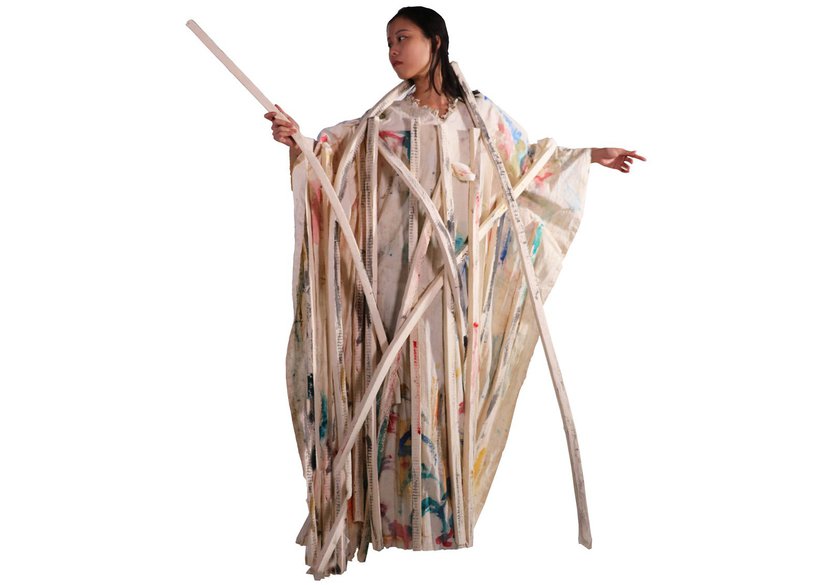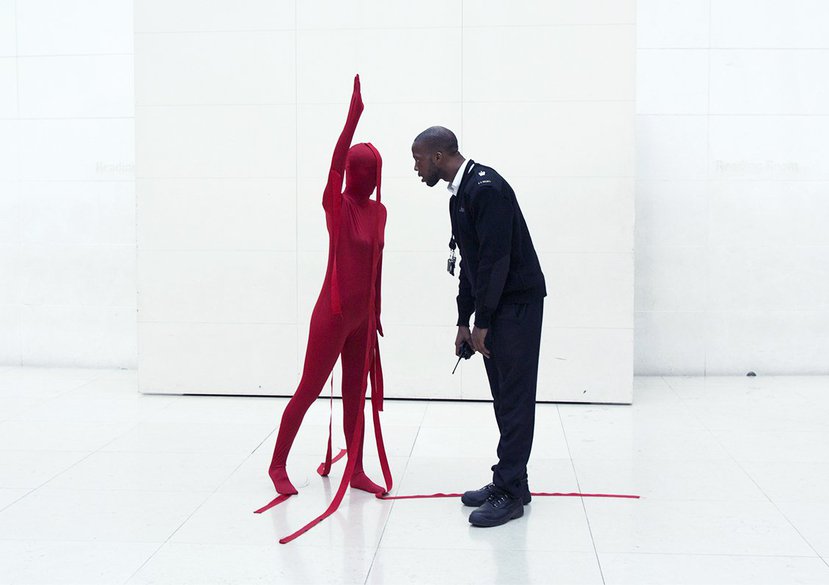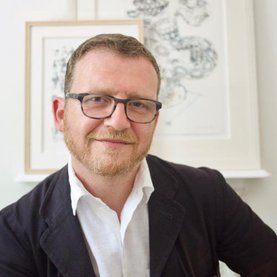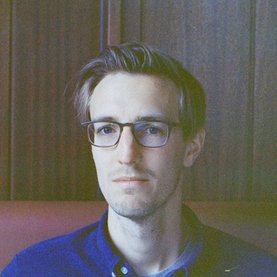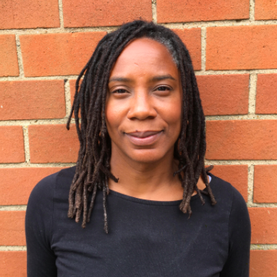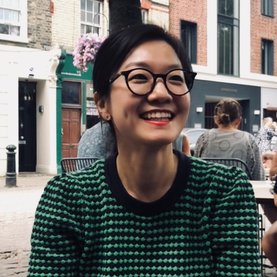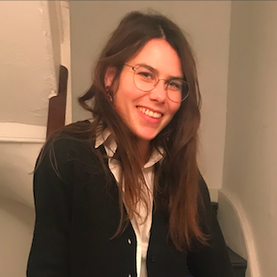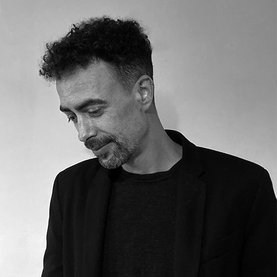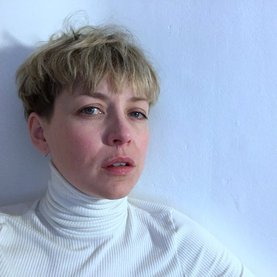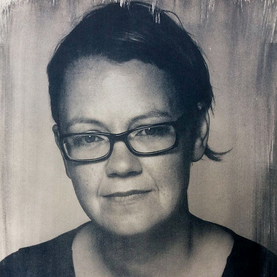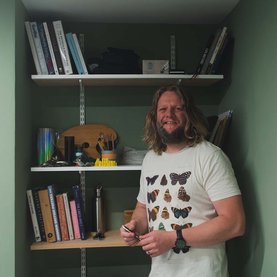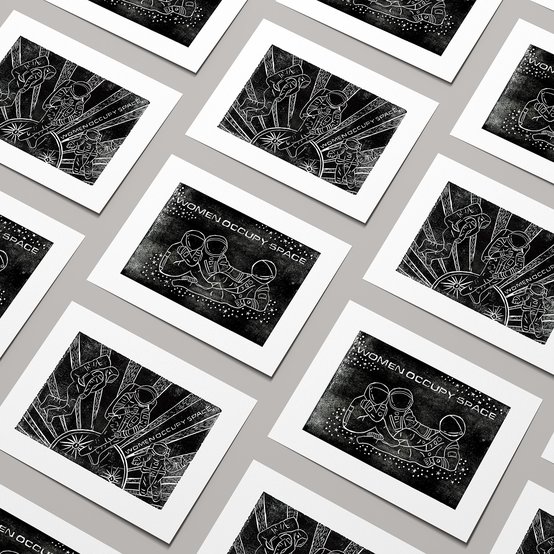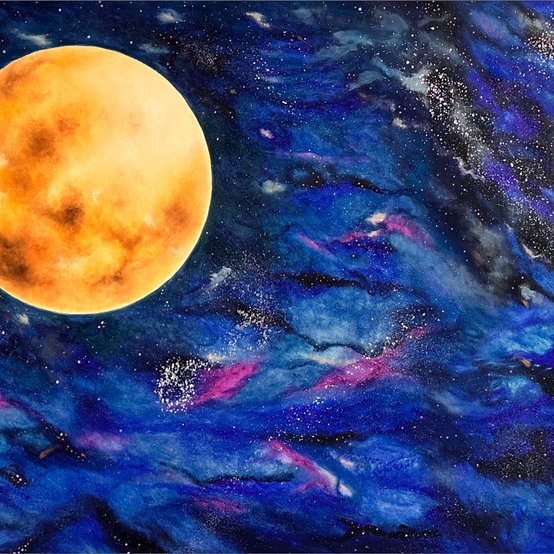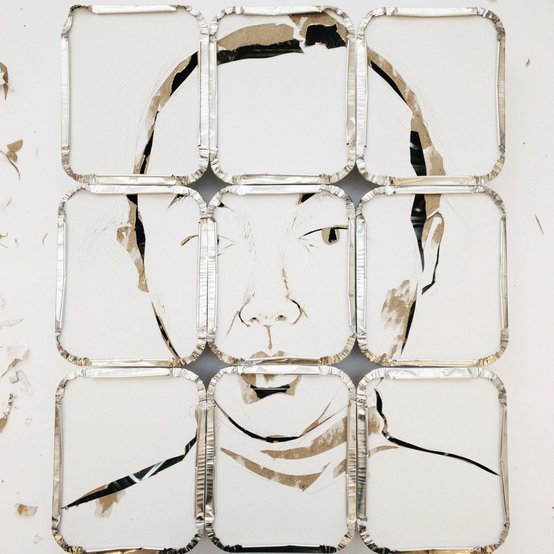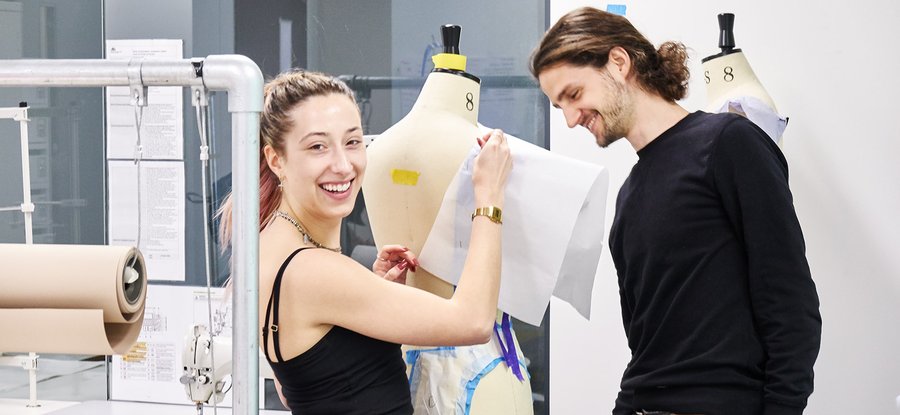
Overview
A global creative cohort preparing for Master’s study
Key details
- 120 credits at FHEQ Level 6
- 30 week programme
- Full-time study
School or Centre
Location
- White City
Next open event
- 5 Jun 2024
- Book Online Open Day
Application deadline
- 9 Aug 2024
Interdisciplinary with flexible modes of study
The Graduate Diploma Art & Design prepares you for Master’s study at the RCA. We focus on developing proficiency in the independent learning methods and practices of art and design, and on introducing you to the role and influence of art and design in the world today.
The programme offers:
- January, May and September start dates
- On-campus, online or dual-learning modes of study
- Progression opportunities to our Master’s programmes.
Specialisms
The programme is interdisciplinary in nature, mirroring the experience of Master’s study at the RCA, however on the Graduate Diploma you’ll be invited to select a specialism when you apply from the following areas:
- Communication
- Design
- Fashion & Textiles
- Fine Art
- Research
One global community
On-campus and online students study together as one combined, collaborative and diverse community of creative practitioners, regardless of whether they choose online, on-campus or dual-learning modes of study.
Industry expertise
The Graduate Diploma is supported by a dedicated team of technicians and local facilitators for online students. All teaching staff are practising artists and designers, as well as being experienced educators.
The best route to RCA Master’s study
We aim to make you better informed about the study options available to you, as well as the possible career paths that you might follow beyond graduation.
Gaining a Distinction on the Graduate Diploma guarantees you entry to MA and MRes programmes that reflect their specialism of study on the Graduate Diploma. This is subject to availability of places. All other students passing the programme will be guaranteed consideration for MA and MRes programmes of their choice.
Entry to programmes is conditional on students meeting postgraduate English-language requirements demonstrated by an additional IELTS test or equivalent.
Graduate successes
Hear from our graduates how the Graduate Diploma enabled them to join a Master’s programme and succeed.
Open Days
Join our upcoming Open Day events to learn more about the programme and speak to students and staff.
Now accepting applications for the September 2024 intake. Deadline to apply: 9 August 2024 at 12 noon (GMT).
Gallery
Staff
Facilities
The Graduate Diploma is located in White City, London’s newest research and creative quarter.
Our mixed-discipline studios encourage cross-disciplinary thought, awareness and action.

More details on what you'll study.
Find out what you'll cover in this programme.
What you'll cover
Modes of study
On-campus
Learn fully on-campus and benefit from everything our facilities have to offer as well as studying in a culturally rich global city.
This is a fully in person experience giving students a studio base with desk space, and access to on-site technical support and maker-space facilities, as well as benefit from the broader cultural aspects of studying in London. You will engage with a range of hybridised approaches to teaching and learning alongside those studying online.
Study structure
- Stage 1 (15 weeks on-campus)
- Stage 2 (15 weeks on-campus)
Demand is high. Apply early to secure your place.
Online
Like on-campus learning there is a set schedule of UK time zone classes, but with the cost-saving and study/life benefits that come with online learning.
Online students engage fully alongside those studying in person. Following the same UK timetable, online students engage through online and hybridised approaches. Students’ practical engagement is supported through online technical support and the opportunity for students to engage with external facilities within their locality.
Study structure
- Stage 1 (15 weeks online)
- Stage 2 (15 weeks online)
We expect online students to participate with a webcam.
Dual-learning
Get the best of both on-campus and online study when you combine them together.
Dual study enables you to study online in stage one and join in person in stage two. This is designed to support students whose external commitment are best met with a more flexible model.
Study structure
- Stage 1 (15 weeks online)
- Stage 2 (15 weeks on-campus)
We expect online students to participate with a webcam during the online section of the programme.
Overview
The Graduate Diploma consists of two blocks of 15-week study, with the first block including an introduction to specialist study at Master’s level in art and design and leading towards further and more in-depth study, practice and portfolio development in the second block.
The first part is a theme-based introduction to the specialist study of art and design, and the various study options available in the field. You’ll also be introduced to the kinds of learning methods that students are likely to encounter in the study of art and design.
The second part of the programme will enable you to focus in more depth on the preparation of a body of work and a portfolio.
Specialisms
Communication
This specialism focuses on the contemporary landscape and discourses of communication design practices. Progression opportunities and routes for MA, MRes, MFA study within the school of Communications at the RCA. This includes Animation, Digital Direction, Information Experience Design and Visual Communication, as well as Service Design.
Design
This specialism focuses on spatial, three-dimensional, and material practice approaches. Progression opportunities and routes for MA, MRes, MDes study within the school of Design at the RCA. This includes Architecture, Interior Architecture, City Design, Design products, Jewellery & Metal, and Ceramics & Glass.
Fashion/Textiles
This specialism focuses on material and speculative approaches to contemporary fashion, fashion soft systems and textiles. Progression opportunities and routes for MA, MRes study within the school of Design at the RCA. This includes Fashion and Textiles.
Fine Art
This specialism focuses on practical and conceptual approaches within contemporary fine art discourse. Progression opportunities and routes for MA, MRes, MFA study within the school of Fine Art and Humanities at the RCA. This includes Painting, Sculpture Print, Contemporary Art Practice and Photography.
Research
This specialism focuses on research-based systems, skills, and Humanities practices. This cross-College pathway supports opportunities to progress specifically to MRes and MDes, as well as Curating, Contemporary Art Practice, Writing and History of Design.
Unit 1: Learning
This unit runs throughout the programme and is intended to enhance your critical and analytical skills and to support the development of English language skills to the requisite level for Master’s study.
Unit 2: Art & Design Practice
This unit introduces you to advanced practices of art and design. You’ll have the opportunity to work around structured project briefs or in self-directed study mode, depending on their prior learning and future course of study. The unit fosters discursive learning and engagement with topics and issues that do not necessarily have right or wrong outcomes.
Unit 3: Independent Art & Design Practice
In the second 15-week block, you’ll move to a more independently determined and focussed mode of learning. Working from a brief, you will be expected to participate in critiques and exhibit their works in progress. The unit will help you to make self-determined judgements about your practice, to display your work and to speak about it clearly and cogently.
Unit 4: Portfolio
The Portfolio unit runs throughout the programme and culminates in the production of a digital portfolio that you will be able to use to seek admission to further study at Master’s level. We will support you in selecting materials which fully articulate your abilities and contextual awareness.
Requirements
What you need to know before you apply
Prospective Diploma in Art & Design applicants are likely to be:
- Those who have the required educational background to go on to Master’s study, but who require greater proficiency in the English language.
- Those who do not have an undergraduate background in art and design, but who can demonstrate potential in their chosen discipline of study.
- Those for whom their undergraduate studies did not adequately prepare them for Master’s study at the RCA
- Those who would like to use the programme as a diagnostic experience to help them decide which area to specialise in at Master’s level.
What's needed from you
Choose when you start
January intake
- 30 weeks
- Graduate in August
- Start a Master's in September with no break
April intake
- 30 weeks
- Graudate in December
- Start a Master’s in September following a 9-month break
September intake
- 30 weeks
- Graudate in April
- Start a Master’s in September following a 5-month break
Portfolio requirements
Your portfolio is a showcase of your work as an artist or designer and can be made up of images, videos or writing examples. Your portfolio helps us to better understand your application and allows you to show evidence of your ability and motivation to undertake a given programme.
Generally, we’re looking for you to demonstrate your:
- Creativity, imagination and innovation
- Ability to articulate the intentions of the work
- Intellectual engagement in areas relevant to the work
- Technical skills appropriate to the work
- Potential to benefit from the programme
Each programme is looking for different things in a portfolio. Each Head of Programme provides specific advice on portfolio requirements in the online application system. We advise you to consider these requirements carefully before submitting your application.
Grad Dip portfolio requirements
We would like you to upload a range of work into the five slots available; consider each slot as a body of work or research focus. This could either be five projects, or five groupings of work.
If you choose the project route, ensure in each project you demonstrate the whole journey: include primary and secondary research, material experimentation, preparity drawings and/or models. Consider the following: what did you look at or start with, what did you do with it, and what was the end result?
If you decide to focus on grouping your work, consider different focuses like Drawing, Making, Still Image, Moving Image, Idea Development, Sketchbooks, Work Based Projects, Group Projects or Written Outcomes. Ensure you try to relate this to your current specialist interest and prior educational background.
Slots can include as many images as you wish just ensure you focus on showing us the journey and not just the outcome. Please include text where appropriate to outline the projects and the details of the work, size, date and dimensions.
English language requirements
If you are not a national of a majority English-speaking country, you will need the equivalent of an overall IELTS score of 5.5 with a minimum 5.5 across each area.
You are exempt from this requirement if you have received a Bachelor's degree with a final classification of 2:1 or above from a university in a majority English-speaking nation within the last two years.
If you need a Student Visa to study at the RCA, you will also need to meet the Home Office’s minimum requirements for entry clearance.
Fees & funding
For this programme
Fees for new students
You'll find tuition fees for September 2024 entry below.
Home (distance learning)
Home (blended learning)
Home (On campus learning)
Overseas and EU (distance learning)
Overseas and EU (blended learning)
Overseas and EU (on campus learning)
Deposit
New entrants to the College for the Graduate Diploma will be required to pay a non-refundable deposit in order to secure their place. The deposit is £2,000 for all Graduate Diploma entrants. Fees for the Graduate Diploma can either be paid in advance or on the day of registration.
* Total cost is based on the assumption that the programme is completed in the timeframe stated in the programme details. Additional study time may incur additional charges.
Scholarships
Scholarships
The RCA scholarship programme is growing, with hundreds of financial awards planned for the 2024/5 academic year. Examples of financial awards offered in 2023/24 are given below.
Sir Frank Bowling Scholarships
For: All programmes excluding short courses
Eligibility criteria: Black or Black British Caribbean, Black or Black British African, Other Black Background, Mixed - White and Black Caribbean, Mixed - White and Black African
Eligible fee status: Home fee status
Value: Full fees & maintenance
More information
Payments
Tuition fees are due on the first day of the academic year and students are sent an invoice prior to beginning their studies. Payment can be made in advance or on registration.
Start your application

Change your life and be here in 2024. Applications now open.
The Royal College of Art welcomes applicants from all over the world.
Before you begin
Check you have all the information you need to apply.
Read our application process guideAsk a question
Get in touch if you’d like to find out more or have any questions.
[email protected]

